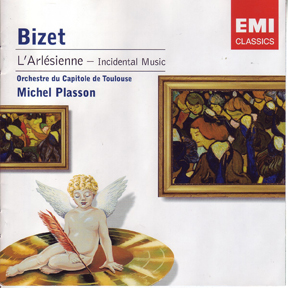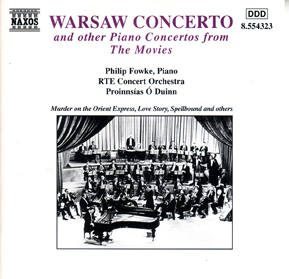Share |
Music: Play Long Gone, Music Lingers On
By Frank Behrens
ART TIMES May/ June 2011
 |
Often a composer was commissioned to provide a score of “incidental” music for a play. And often the score would become far more popular than the play itself. For example, millions have heard Grieg’s music to Ibsen’s “Peer Gynt” without having read a single line from the play. The ratio might decrease with Mendelssohn’s incidental music for Shakespeare’s “A Midsummer Night’s Dream,” and I dare say that the most ardent lovers of Bizet’s incidental music to Daudet’s “L’Arlesienne” might be entirely unaware that such a play exists.
Alphonse Daudet was a French author, best known today for his “Lettres de mon moulin” (Letters from my mill), which appeared in 1872. Part of that collection was a novel titled “L’Arlesienne” (The girl from Arles). It was good enough to attract the attention of an impresario who commissioned Daudet to turn the novel into a play, which was to contain three acts and five tableaux with music and chorus.
For a composer, they turned to George Bizet, who was delighted to work with such an esteemed author and provided 27 miniatures, many of which are minor masterpieces of that genre. There are some recordings of the complete score (some of which unwisely add lines of dialogue that seriously interfere with the music), the best of which in my opinion is the EMI CD with Michel Plasson conducting.
 |
As for the play itself, it is distinguished only by the titular female never appearing in the course of the action! In Provence, there are two brothers, one of whom is a simpleton; the other is obsessed with a girl from Arles. The latter cannot cope with learning that she has been “unfaithful” and leaps from a high window to end the play. After being shown to 21 nearly empty houses, the play folded. Happily, Bizet’s music lived on.
It is mostly played in a four-part suite arranged by Bizet himself and in a second suite arranged by Bizet’s pupil Ernest Guiraud (who also reset the spoken dialogue of “Carmen” to recitative form, so it could play as a through-sung work at the Opera).
Quite some time ago, I heard an opera by Francesco Cilea titled “L’arlesiana,” which follows Daudet’s play fairly closely. It is pleasant enough, but the music will never eclipse that of Bizet.
Franz Schubert was also asked to compose the incidental music for a play that not only was a failure but all copies of which have been lost! The play by Helmina von Chezy was called “Rosamunde, Furstin von Zypern” (Rosamonda, Princess of Cypress). The music too was lost. Lost that is until two gentlemen named George Grove and Arthur Sullivan hunted in basements and attics to restore to the world so much of Schubert’s music, among which was his Rosamunde score.
The overture has become a familiar concert favorite, although the entire incidental music is seldom played. There are, however, several recordings of the complete score. How interesting, though, it would be to have the play available also, as poor as it might have been.
This discussion can be extended to film scores. In the case of “Laura,” the film is still shown frequently on television and its haunting theme song also turns up on CD collections of music from the cinema. But what about “The Warsaw Concerto”? How many who still recall that melody can place it in the context of its film and even name the composer? (See below for answer.)
An interesting specialized collection can be found on an old Naxos CD, titled “Warsaw Concerto and other Piano Concertos from the Movies.” It includes nine examples of piano concertos heard in films either as background music or played by one of the characters as part of the plot. They range from interesting to quite lovely, and each can exist as absolute music with no reference to the films for which they were composed.
Again, I ask my readers if they can think of further examples of music that has outlived its play or film.
Oh, as for “Warsaw Concerto,” it was heard in the 1941 film “Dangerous Moonlight,” the story of a concert pianist who does his bit during World War II. The composer is Richard Addinsell.
